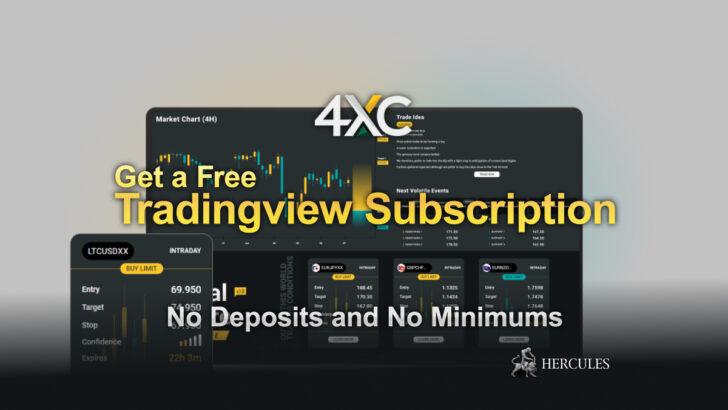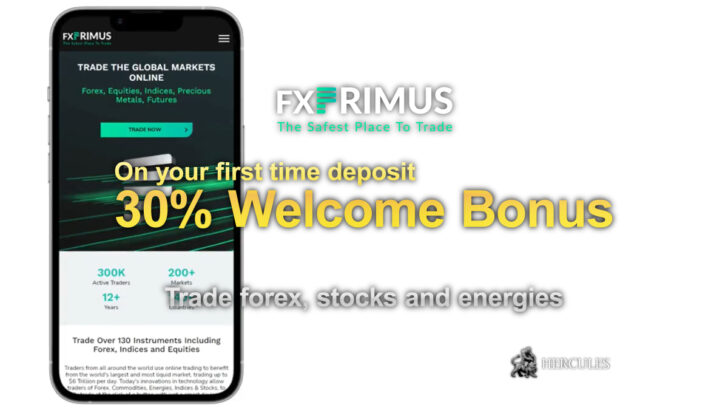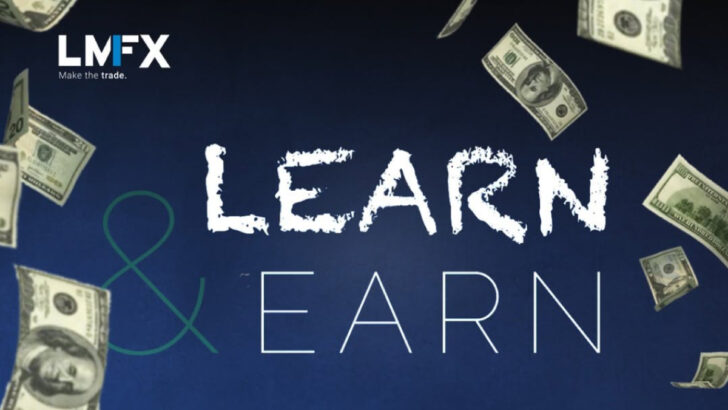Question: How to open OANDA's Forex trading account?
Notice
This FAQ has ended its release period. Please check OANDA's latest information and campaign on OANDA's company introduction page.
OANDA - What's now?
We are no longer promoting OANDA. The information regarding to OANDA on the website 'Hercules.Finance' maybe outdated. ref. OANDA
Table of Contents
- How to start trading Forex with OANDA?
- What are Forex and CFD margin tradings?
- How to efficiently make trades in Forex and CFD markets?
- FAQs about Forex trading
How to start trading Forex with OANDA?
There are many different channels for foreign exchange transactions, but the operation method is basically the same: that is, through the purchase and sale of currencies, so as to make a profit.
At present, most of the global foreign exchange transactions are conducted through foreign exchange brokers.
Therefore, the first step for foreign exchange transactions is to choose a safe and reliable foreign exchange broker and open an account.
Go to OANDA’s account opening page
1. Choose a foreign exchange broker
Usually, the most important points for choosing a foreign exchange broker are the following:
Is the broker secure and trustworthy?
At present, the most stringent regulations in the world are British Financial Market Conduct Authority-FCA, National Futures Association-NFA, Australian Securities and Investment Commission-ASIC, Japan Financial Services Agency-JFSA, Singapore Monetary Authority-MAS.
At least one of the above regulatory licenses is required to be considered a safe trading platform.
OANDA currently holds six financial licenses including the above five and can be identified as one of the safe foreign exchange brokers.
Does the broker support traders in multi-language?
If a broker cannot provide a website or customer service in the investor’s home language, investors are advised not to choose the broker.
Just think about it: if there are any questions that can’t be communicated smoothly, there may be unnecessary problems.
In addition, the response speed of customer service is also one of the references.
Contact OANDA’s Multilingual Support Team
When was the broker established?
The history of foreign exchange margin trading is not long, so the history of foreign exchange brokers will not be very long.
However, at least it must be established for more than 10 years before it can be recognized as the service of this broker and relatively complete, which can guarantee the basic needs of traders.
OANDA has been established for more than 25 years since 1996, and it can be regarded as an established brokerage among foreign exchange brokers.
Go to OANDA’s Official Website
Are the costs and fees reasonable?
The most common costs in foreign exchange transactions are spreads and overnight interest.
Different foreign exchange brokers have different spreads.
It is possible that the spread of a certain currency pair product has an advantage, but it is at a disadvantage compared to other brokers’ gold or US stock index products.
Therefore, when choosing a foreign exchange broker, you must also choose the financial products you want or are interested in.
The overnight interest rate is related to the inter-bank lending rate, so there will be no significant difference.
If the investor does not hold a position overnight, there will be no overnight interest.
Therefore, the size of the spread during the transaction directly determines the transaction cost of investors.
Of course, some accounts that provide low spreads or zero spreads usually require a certain trading volume or deposit amount to enjoy.
Generally, it is not recommended for inexperienced investors.
OANDA’s spreads are very advantageous, especially gold (XAU/USD) spreads start at 30 cents, WTI crude oil spreads start at 3.0, and EUR/USD spreads start at 1.0.
In addition, OANDA also provides overnight interest inquiries for the past 10 days.
Few brokers provide past overnight interest inquiries, which proves that OANDA is a transparent and fair broker.
Find out more about fees charged in OANDA’s Official Website
2. Open an account (Forex and CFD trading account)
After choosing a foreign exchange broker, you can register.
Usually, the registration process is carried out online, as long as the identification and residence certification materials are prepared in advance, the registration process can be carried out step by step.
Identification documents: passport, identity card, driver’s license
Residence certification information: utility bills, credit card bills, tax bills, etc.
Generally, the validity period is 90 days.
3. Make a deposit
After successful registration, traders can choose to deposit funds into the broker’s account.
Deposits are generally divided into credit cards, bank wire transfers, electronic wallets, etc.
Usually, credit card deposits are the fastest and can be completed in a few minutes.
If you want to deposit more than 10,000 currency units at a time, you must use a bank wire transfer, and bank wire transfer will have a handling fee.
Log in to OANDA’s portal to see deposit methods
4. Download and install trading software/start trading
Usually, foreign exchange brokers will provide an MT4 platform.
The MT4 platform is the world’s most used trading platform.
You can download the PC or APP directly on the official website of the registered broker.
Some brokers also provide a web version of MT4.
Some foreign exchange brokers also provide self-developed trading platforms, which are usually slightly different from MT4.
Enter the registered account number and password on the trading software/web page to start foreign exchange/CFD trading.
What are Forex and CFD margin tradings?
Foreign exchange margin trading (Foreign exchange margin trading, Forex) and contract for difference (Contract For Difference, CFD) are both a trading method that uses margin to amplify leverage.
This type of transaction can be bought (long) or sold (short), and it is mainly traded in the form of a “sale contract”, so there is no physical commodity.
Start trading Forex and CFDs with OANDA
What’s the difference between Forex and CFDs?
We can think of foreign exchange margin trading as a type of contract for difference (CFD).
For example, New York is a city in the United States.
Here in New York is “foreign exchange margin trading”, while the United States is “Contracts for Difference (CFD).”
Generally speaking, the foreign exchange margin trading that we often hear, in most cases also refers to the contract for difference (CFD), rather than just foreign exchange.
Similarly, in addition to foreign exchange products, foreign exchange brokers also provide gold, crude oil, indexes, etc.
Learn more about Forex and CFD trading
Which currencies can you trade in the Forex market?
There are hundreds of foreign exchange products worldwide, and investors can choose the currency to trade according to their preferences.
We can divide it into major currencies and minor currencies based on factors such as currency circulation, a country’s economy and trade.
- Major currency
- The U.S. dollar (USD), euro (EUR), Japanese yen (JPY), British pound (GBP), Swiss franc (CHF), Australian dollar (AUD), New Zealand dollar (NZD) and Canadian dollar (CAD) are called major currencies. These eight Major currencies have the characteristics of strong liquidity and large trading volume.
- Minor currency
- Except for the major currencies, all other currencies are minor currencies. For example: South Korean Won (KRW), Swedish Krona (SEK), Russian Ruble (RUB), Hong Kong Dollar (HKD), Singapore Dollar (SGD) and Turkish Lira (TRY).
See available markets in OANDA’s Official Website
Types of currencies by characteristics
According to the characteristics of currencies, they can be divided into commodity currencies, safe-haven currencies, high-interest currencies, and risk currencies.
- Commodity currency
- It has a lot to do with the commodity resources of the country or region. For example, Australia, New Zealand, and Canada are rich in coal, iron, and oil. Therefore, when mineral prices and oil prices are strong, the corresponding currencies such as the Australian dollar, New Zealand dollar, and Canadian dollar will appreciate and rise. And when the economy improves or rises, it means that the demand for commodities will increase, which will lead to the strengthening of commodity currencies.
- Safe-haven currency
- A currency that is not easily affected by geopolitics, wars, market fluctuations, etc. It is stable and not easy to depreciate. Therefore, when market risks are high, investors are more inclined to trade safe-haven currencies. Common safe-haven currencies include Swiss francs, US dollars, Japanese yen, and so on.
- High interest currency
- Some require higher interest rates to attract foreign funds, so they are called high-interest currencies. For example, Australian dollars and New Zealand dollars must raise interest rates to attract more funds.
- Risk currency
- Currencies with high volatility against other major currencies can be considered risky currencies, and the most common high-risk currencies are often emerging market currencies. Emerging markets have factors such as relatively unstable political and economic situations, low foreign exchange reserves, large trade deficits, and high debt ratios. It is easy for the country’s currency to fluctuate greatly due to some shocks. For example Argentine Peso (ARS), Turkish Lira (TRY), etc.
Main advantages of Forex and CFD trading
Features of foreign exchange margin/contract for difference (CFD) trading are:
- Flexible trading time and unlimited trading space
- The most obvious difference between the foreign exchange market and other trading markets is that the foreign exchange market has no exchange restrictions and is 5 days × 24 hours uninterrupted market. Except for Saturdays, Sundays, and holidays, investors can enter/exit at any time.
- Long and short two-way trading
- Foreign exchange transactions can be carried out in a two-way operation of “buy first and then sell” or “sell first and buy”, and will not set price limits like the stock market. The exchange rate depends on market supply and demand. Unless there is a war or a major accident and the transaction is stopped, otherwise, The foreign exchange market is an international market, with a large number of participants, it is not easy to be manipulated, and transactions are quite flexible.
- Low transaction costs
- Common foreign exchange transaction costs include:
- Spread:
- The spread between buying and selling. The point difference is a floating-point difference and a fixed point difference.
- Overnight interest:
- When you hold a position overnight, it will generate a position interest.
- Handling fee:
- Some brokers will provide a spread as low as 0, but will charge a certain percentage of the handling fee when traders buy and sell.
- High capital utilization rate
- Foreign exchange margin trading can be traded with high leverage, so it can also be traded with small funds. That is to deposit a sum of money as a margin (Margin), through leverage multiples, investors can “buy low and sell high” or “sell high and buy low” to profit from it. However, if the capital is small, be careful about the forced liquidation ratio of high leverage, especially for beginners, it is not recommended to use high leverage.
- Variety of trading commodities
- In addition to currency pairs, financial products such as stocks, commodities, and precious metals can also be traded through CFDs.
Go to OANDA’s Official Website
What affects the Forex prices on OANDA MT4?
As a manifestation of the external price of a country’s currency, the exchange rate is affected by domestic and international factors. The main ones are:
- Economic situation:
- The overall effect of all aspects of a country’s economy is the most direct and major factor affecting the exchange rate of its currency. Which mainly considers the level of economic growth, international balance of payments, inflation, and interest rates.
- Political situation:
- Changes in the international and domestic political situation have a great impact on the exchange rate. If the situation is stable, the exchange rate will be stable; if the situation is unstable, the exchange rate will also fluctuate. Areas that can usually be paid attention to include international relations, leading faction disputes, and the situation of important government officials.
- War:
- War will cause insecurity in a certain area and will have a negative impact on the exchange rate of related regions and weak currencies. It will be beneficial to the exchange rate of currencies and traditional safe-haven currencies of countries far away from the event.
- Government and central bank monetary policy:
- The government’s fiscal policy, foreign exchange policy, and central bank’s monetary policy play a very important role in the exchange rate. For example, the government announces that its currency will be devalued or appreciated, or the central bank will intervene in interest rates.
- Others:
- There are also some major emergencies, natural disasters, and infectious diseases that will have a major impact on the local area, which will cause changes in the exchange rate of the region, and the extent of the results will also have an impact on the long-term changes in the exchange rate.
Start trading Forex with OANDA
How to efficiently make trades in Forex and CFD markets?
Analysis methods in foreign exchange transactions can be divided into two types, namely fundamental analysis, and technical analysis.
Fundamental analysis focuses on important economic trends, political developments, news reports, etc., to judge the supply and demand of currency pairs, and thereby determine the future trend of currency pairs.
Fundamental analysis includes the total value of each country, inflation rate, unemployment rate, foreign exchange reserves, etc.
Technical analysis focuses on price-based data analysis, using various trend lines, charts, indicator tools, and data to determine the future trend of the exchange rate.
The most common ones are K-line, RSI, MACD, etc.
Go to OANDA’s Official Website
How do you look at the quotation of Forex market?
Foreign exchange contracts are all displayed in the form of currency pairs.
The left side of the currency pair is the base currency, and the right side is the quote currency.
Regardless of whether investors are buying or selling to open positions, they are all trading the base currency.
The value of the base currency is always in units of 1, which means 1 lot.
1 lot is 1 standard lot, 1 lot = 1 contract (100,000 units).
OANDA offers a minimum of 0.01 contracts.
Take the Euro/U.S. dollar as an example, suppose the Euro (EUR)/U.S. dollar (USD)=1.2000, the Euro is the base currency, and the U.S. dollar is the quote currency.
This means that 1 Euro is equal to 1.2000 U.S. dollars, and the contract unit is 100,000 Euros, which is equivalent to you holding a trading right of 100,000 Euros.
There are usually four or five digits after the decimal point in foreign exchange quotations.
The more digits, the more accurate the quotation.
The foreign exchange quotation is a two-way quotation, that is, the buying price and the selling price are quoted at the same time, and the trader himself decides to buy or sell.
The difference between the buying price and the selling price is the spread.
Spread is the transaction cost of investors.
Learn how to trade Forex with OANDA
What are the types of orders in Forex market?
There are many types of orders in foreign exchange transactions, and these different types of orders can be used according to each person or different market conditions.
Usually divided into:
- Market Order
- Market order is the most common type of order, which is the type of order to buy/sell at the current price.
- Buy Limit Order
- A buy transaction request issued when the market is at or below a certain price, that is, a buy pending order is placed below the current price.
- Sell Limit Order
- A sell transaction request issued when the market is at or above a certain price, that is, a pending sell order is set above the current price.
- Buy Stop Order
- A buy transaction request issued when the market is at or above a certain price, that is, a pending buy order is placed above the current price.
- Sell Stop Order
- A sell transaction request issued when the market is at or below a certain price, that is, a pending sell order is placed below the current price.
FAQs about Forex trading
Do you have some questions before opening an account and trading with OANDA?
Here are some of the frequently asked questions about OANDA’s MT4 and its trading condition.
- What is leverage?
- Leverage is a double-edged sword in foreign exchange transactions, which may bring high returns to investors, or may have to bear high risks! The so-called leveraged trading is the use of small capital to invest several times the original capital. Foreign exchange margin trading is a kind of leveraged trading. Leverage can magnify the investment principal exponentially, and investors only need to pay a small part of the margin to make high-value investments. The leverage ratio provided by each dealer is different, and the minimum deposit that investors must deposit will also be different.
- How much capital is required for foreign exchange transactions?
- The recommended deposit amount for the first foreign exchange transaction should not exceed $500, and you can choose the smallest position to hold the position so that even the loss will not be much. If you are an inexperienced investor, it is recommended to perform a demo account operation first.
- How much is the cost of opening an account?
- There is no charge when opening a foreign exchange margin account. If a certain platform charges, there must be a problem with that platform, and investors are advised to open an account carefully.
- Are there any additional fees for deposit/withdrawal?
- OANDA does not charge investors’ deposit fees, but banks will charge corresponding fees.
- What is an inactivity fee?
- Usually when an account is opened and the account is successfully deposited, if there is no transaction for more than half a year, the platform will charge the trader an inactivity fee until the funds in the account are deducted.
- What is forced liquidation (stop out)?
- Like futures, if the margin is too small and the leverage is too large, it is likely to be forced to liquidate when the market fluctuates. Investors with little experience are advised to avoid trading with too high leverage.









